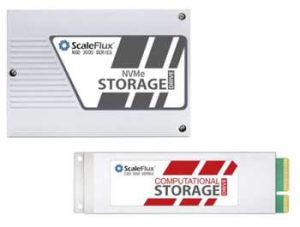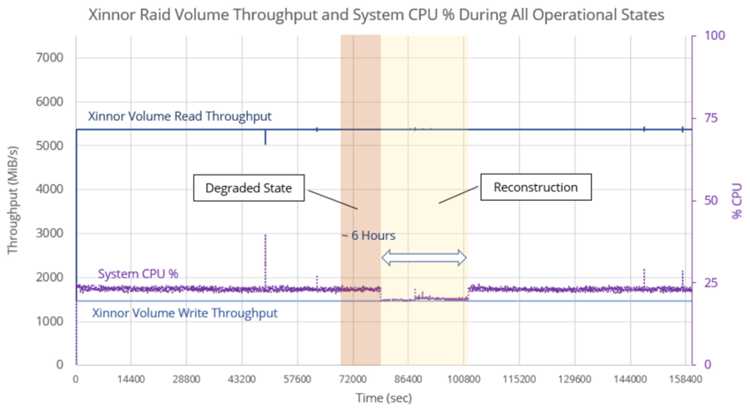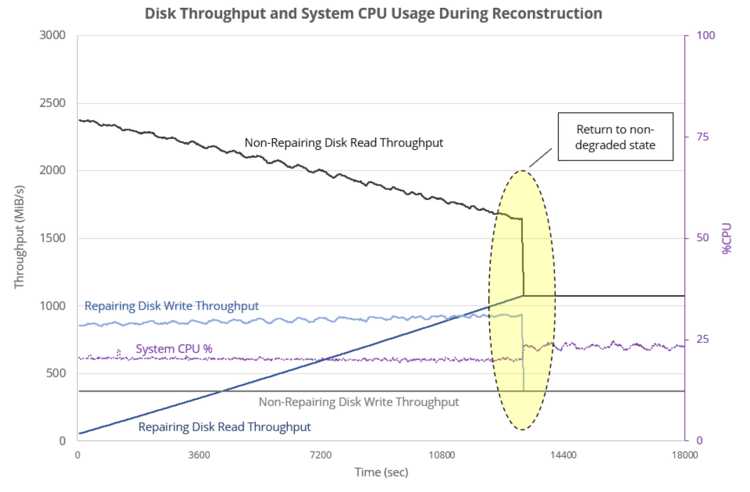Joint Testing by Xinnor and ScaleFlux Demonstrates Performance RAID Software Solution for Latency-Sensitive Distributed Database Applications
Test results show RW throughputs of 5.4GB/s and 1.7GB/s, across all states with slight decline during array reconstruction phase.
This is a Press Release edited by StorageNewsletter.com on June 30, 2023 at 2:01 pmXinnor and ScaleFlux, Inc. jointly announced the completion of a feasibility study into the benefits of pairing Xinnor xiRAID with ScaleFlux CSD 3310 NVMe SSDs for latency-sensitive distributed database applications.
The results conclusively prove a software RAID solution capable of servicing high-performance workloads under all RAID operating states.
ScaleFlux CSD 3310 NVMe SSDs

For latency-sensitive applications, it is essential for increases in IO traffic due to reconstruction to not affect host IO performance. For this reason, a key consideration during the study was to evaluate the impact that degraded and reconstructing states would have on the performance of the RAID array. Combined, 2 features of the integrated solution ensured no performance penalty on the system. 1) xiRAID offers advanced control over the rate of array reconstruction, ensuring a predictable workload and minimizing contention with the host IO. 2) CSD 3310 SSDs use transparent inline compression, reducing the impact of intra-RAID reconstruction IO and enabling lower read latency profiles even during reconstruction.
To evaluate impact on IO performance, 4 conditions were studied:
-
Normal operation
-
Surprise removal of a drive from the array and continued operation in the degraded state
-
Adding an empty drive back into the array and operation in the reconstructing state
-
Normal operation after full reconstruction.
The test results consistently show RW throughputs of 5.4GB/s and 1.7GB/s, respectively, across all states (*) with only a slight decline during the array reconstruction phase. The tail latency remained low throughout all states, indicating the ability of the joint solution to maintain low-latency performance. In conclusion, the study proves that xiRAID fast software RAID and ScaleFlux NVMe SSDs with inline compression meet the demands of latency-sensitive distributed databases, such as Aerospike. (**)
(*) Test environment: a dual-socket Xeon Gold 6342 CPU with 48 physical cores and 512GB of DRAM, paired with 5×7.68TB ScaleFlux CSD 3310 PCIe Gen 4 SSDs and Xinnor’s xiRAID in RAID-5. The OS was Ubuntu 22 with kernel version 5.15.0-70, and performance was evaluated using the Aerospike certification tool.
(**) Download the application note to learn more about the results.
















 Subscribe to our free daily newsletter
Subscribe to our free daily newsletter


